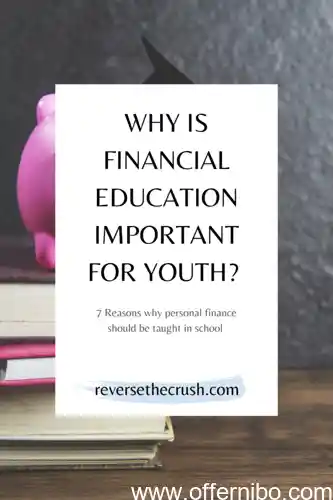In today’s rapidly evolving financial landscape, it has become imperative to equip our youth with the knowledge and skills necessary to navigate the complexities of personal finance. Financial education empowers young individuals to make informed decisions, manage their resources effectively, and secure their financial futures. As educators, parents, and community leaders, it is our collective responsibility to prioritize financial literacy among our youth, laying the foundation for their financial well-being. This comprehensive blog post delves into the multifaceted importance of financial education for youth, exploring the myriad of benefits it offers and highlighting the urgent need to address the financial literacy gap. We will delve into the foundational principles of financial education, its role in fostering responsible spending habits, the significance of investment knowledge, and the importance of instilling financial planning skills in young minds. Join us on this enlightening journey as we uncover the transformative power of financial education and advocate for its empowerment among the next generation.
Q1. Why is financial education important for youth?
Ans: Financial literacy empowers youth to make informed financial decisions, manage their money wisely, and secure their financial future.
Q2. What are the benefits of financial education for youth?
Ans: It equips them with knowledge and skills to plan for the future, avoid debt, and build wealth.
Q3. How can financial education help youth avoid financial pitfalls?
Ans: It teaches them about the dangers of excessive debt, predatory lending, and financial scams.
Q4. What are the consequences of financial illiteracy for youth?
Ans: It can lead to poor financial habits, debt accumulation, and reduced economic opportunities.
Q5. How can parents and educators promote financial education for youth?
Ans: By providing guidance, discussing financial concepts, and encouraging responsible spending habits.
Q6. What resources are available to support financial education for youth?
Ans: Non-profit organizations, government programs, and online platforms offer resources for teaching financial literacy to youth.
